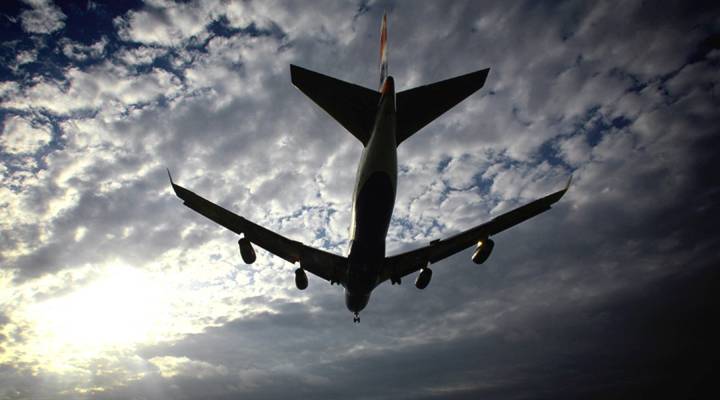
Airlines seek tighter leash on animals aboard flights

Oliver leads a busy life. The eight-year-old chihuahua splits most of his time between home, a law office in Tampa, Florida, and court with human rights attorney Mayra Calo, his owner. Her car is set up for him, with a mounted seat that she buckles him into for travel between hearings and client meetings.
Oliver became Calo’s emotional support animal in 2011 after her sister passed away. Calo started feeling depressed and anxious, and her therapist noticed that Oliver was exhibiting emotional support pet qualities.
“Whenever I get upset, if he’s on the floor, he jumps on my lap, or if he’s on the bed with me, he’ll get on my shoulder and he’ll snuggle. He’ll lift my hand to try and distract me,” Calo said.
“He feels my grief. You know, and he’ll get all up in my face. Whereas, if I’m not upset, he completely ignores me,” she laughed.
Oliver, an eight-year-old chihuahua, regularly flies with his owner, human rights attorney Mayra Calo, as a service dog.
Calo got a letter from her doctor authorizing Oliver to become her emotional support animal. A few years later, when she injured her back, she had Oliver trained as a service dog. He can fetch her pill bottle and alert 911 with a button on his collar. Oliver has flown as far as Greece with Calo for free under the Air Carrier Access Act.
Under the same set of rules, emotional support pets fly for free too. While service animals need formal training that can cost as much as $25,000, people can go online, pay a one-time $100 fee and get a letter certifying their emotional support pet.
“It’s easier now more than ever for an individual to bring an emotional support animal with them — whether they are an actual emotional support animal or not,” said Douglas Kidd, executive director of the National Association of Airline Passengers.
Many passengers, he added, are using the loophole to avoid pet fees they’d have to pay otherwise. Kidd said one of his biggest concerns is that people may bring untrained pets on flights, that could pose a danger to other passengers.
According to Airlines for America, a lobbying group for commercial airlines, passengers brought 751,000 pets on planes in 2017 as emotional support animals, up from 481,000 in 2016.
After a spike in passenger injuries linked to pets in cabins, airline companies are calling for tougher guidelines for emotional support animals.
Hotels, restaurants, and other public places often have stricter rules around animals.
“That is the same standard that should apply in a confined tube at 30,000 feet in the air,” said Sharon Pinkerton, senior vice president of legislative and regulatory policy for Airlines for America.
Some airlines have already changed their policies. In March, Delta Airlines began requiring that passengers supply proof that an animal has been trained and a letter from a health professional.
| Are airline rules getting out of hand? |
| Even dogs need to have experience to get a job |
| What rescue puppies can teach us about supply and demand |
There’s a lot happening in the world. Through it all, Marketplace is here for you.
You rely on Marketplace to break down the world’s events and tell you how it affects you in a fact-based, approachable way. We rely on your financial support to keep making that possible.
Your donation today powers the independent journalism that you rely on. For just $5/month, you can help sustain Marketplace so we can keep reporting on the things that matter to you.












